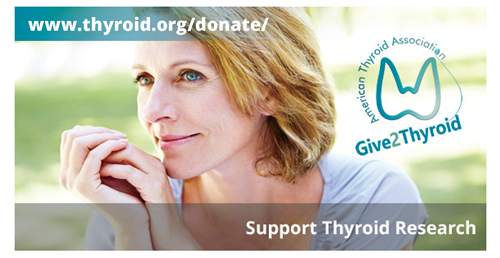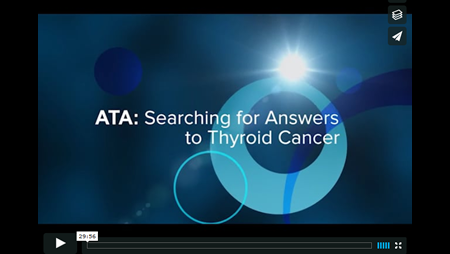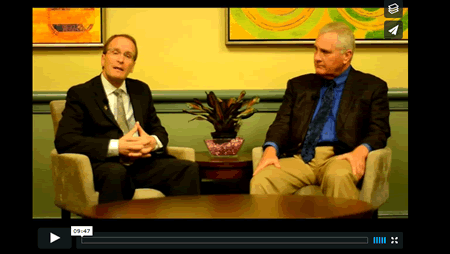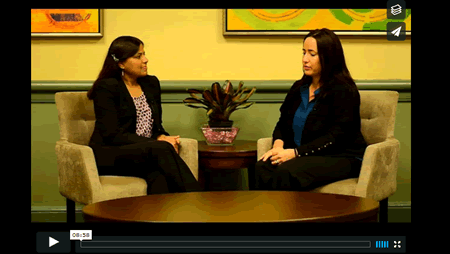Clinical Thyroidology for the Public summarizes selected research studies discussed in the previous month’s issue of Clinical Thyroidology, an official publication of the American Thyroid Association. Editor-in-chief, Alan Farwell, MD, FACE
Available in pdf format for saving and printing and Web page format for viewing online
PDF Format for Saving and Printing
Clinical Thyroidology for the Public Volume 13 Issue 5 (PDF file, 7.5 MB)
TABLE OF CONTENTS – Web Format
STATEMENT ON COVID-19 (PDF File for saving and printing, 718 KB)
SURGICAL AFFAIRS COMMITTEE COMMENT ON THYROID SURGERY DURING THE COVID-19 PANDEMIC
(PDF File for saving and printing, 699 KB)
THYROID CANCER
Financial and health insurance status affect clinical management and quality of life in patients with thyroid cancer
Health insurance plays a significant role for Americans to access and receive care, and whether or not a patient has health insurance may affect cancer treatment and outcomes. Two recent studies addressed the impact of health insurance and financial status on thyroid cancer care. The first investigated the effect of health insurance status on diagnosis and treatment of patients with papillary thyroid cancer. The second evaluated the degree of financial difficulty among thyroid cancer survivors and its impact on quality of life.
•Ullmann TM et al 2019 Insurance Status Is Associated with Extent of Treatment for Patients with Papillary Thyroid Carcinoma. Thyroid 29(12):1784-1791.
•Mongelli MN et al 2020 Financial burden and quality of life among thyroid cancer survivors. Surgery 167(3):631-637.
(PDF File for saving and printing, 746 KB)
THYROID CANCER
Patients who tend to prefer maximal medical care receive more intense thyroid cancer followup care
It has been recognized for a long time that individuals have different preferences for their medical care. Some are medical maximizers and others medical minimizers with quite different preferences for more or less medical care. The aim of this study was to better understand the role of patient preferences on the intensity of follow-up medical care in patients who became disease-free after initial treatment for thyroid cancer.
Evron JM 2019 role of patient maximizing-minimizing preferences in thyroid cancer surveillance. J Clin Oncol 37:3042– 3049. PMID: 31573822
(PDF File for saving and printing, 861 KB)
THYROID AND PREGNANCY
Selenium supplements in pregnant women with thyroid disease
Selenium is a mineral found naturally in various foods that is important for making thyroid hormones and for normal thyroid health. Two previous studies examining the effects of selenium supplementation in pregnant women had conflicting results. To address this, the current study examines the effect of selenium supplementation in pregnant women with autoimmune thyroid disease on the levels of TPO antibodies during and after pregnancy.
Mantovani, G., et al. “Selenium supplementation in the management of thyroid autoimmunity during pregnancy: results of the “SERENA study”, a randomized, double-blind, placebocontrolled trial.” Endocrine 66.3 (2019): 542-550.
(PDF File for saving and printing, 771 KB)
GRAVES’ DISEASE
“Block-and-Replace” treatment in children with Graves’ disease
Methimazole is an effective treatment for Graves’ disease. However, some patients remain poorly controlled on methimazole alone. The block-and-replace method uses methimazole to completely block the thyroid gland and levothyroxine to bring the thyroid hormone levels to back to normal. The current study examined a group of children with poorly controlled Grave’s disease who were managed by the block-and-replace method with methimazole and levothyroxine.
Vigone MC et al 2019 “Block-and-replace” treatment in Graves’ disease: experience in a cohort of pediatric patients. J Endocrinol Invest. Epub 2019 Nov 12. PMID: 31713721.
(PDF File for saving and printing, 731 KB)
THYROIDITIS
Thyroiditis while receiving immune checkpoint inhibitor therapy for non-thyroid cancers is associated with improved overall survival
Immune checkpoint inhibitors are a new class of cancer chemotherapy agents that allow the body’s own immune system to attack and destroy cancer cells. Since autoimmune thyroid disease is a common cause of thyroid problems, it is not surprising that one of the side effects of these drugs is both hyper- and hypothyroidism. This study examines the frequency, course and survival effects of newly diagnosed autoimmune thyroid disease after treatment with immune checkpoint inhibitors.
Kotwal A et al 2020 PD-L1 inhibitor-induced thyroiditis is associated with better overall survival in cancer patients. Thyroid. Epub Jan 9. PMID: 31813343.
(PDF File for saving and printing, 858 KB)
THYROID CANCER
Controversies, consensus, and collaboration in the use of radioactive iodine therapy for the treatment of thyroid cancer
The latest ATA thyroid cancer guidelines encourage more conservative use of radioactive iodine therapy. These recommendations have been controversial and 2 prominent nuclear medicine organizations declined to endorse the guidelines. In order to promote better understanding of differences in perspective, leaders in the field met to develop recommendations/guiding principles for the use of radioactive iodine therapy.
Tuttle RM et al 2019 Controversies, consensus, and collaboration in the use of 131I therapy in differentiated thyroid cancer: a joint statement from the American Thyroid Association, the European Association of Nuclear Medicine, the Society of Nuclear Medicine and Molecular Imaging, and the European Thyroid Association. Thyroid 29:461–470. PMID: 30900516.
(PDF File for saving and printing, 729 KB)









